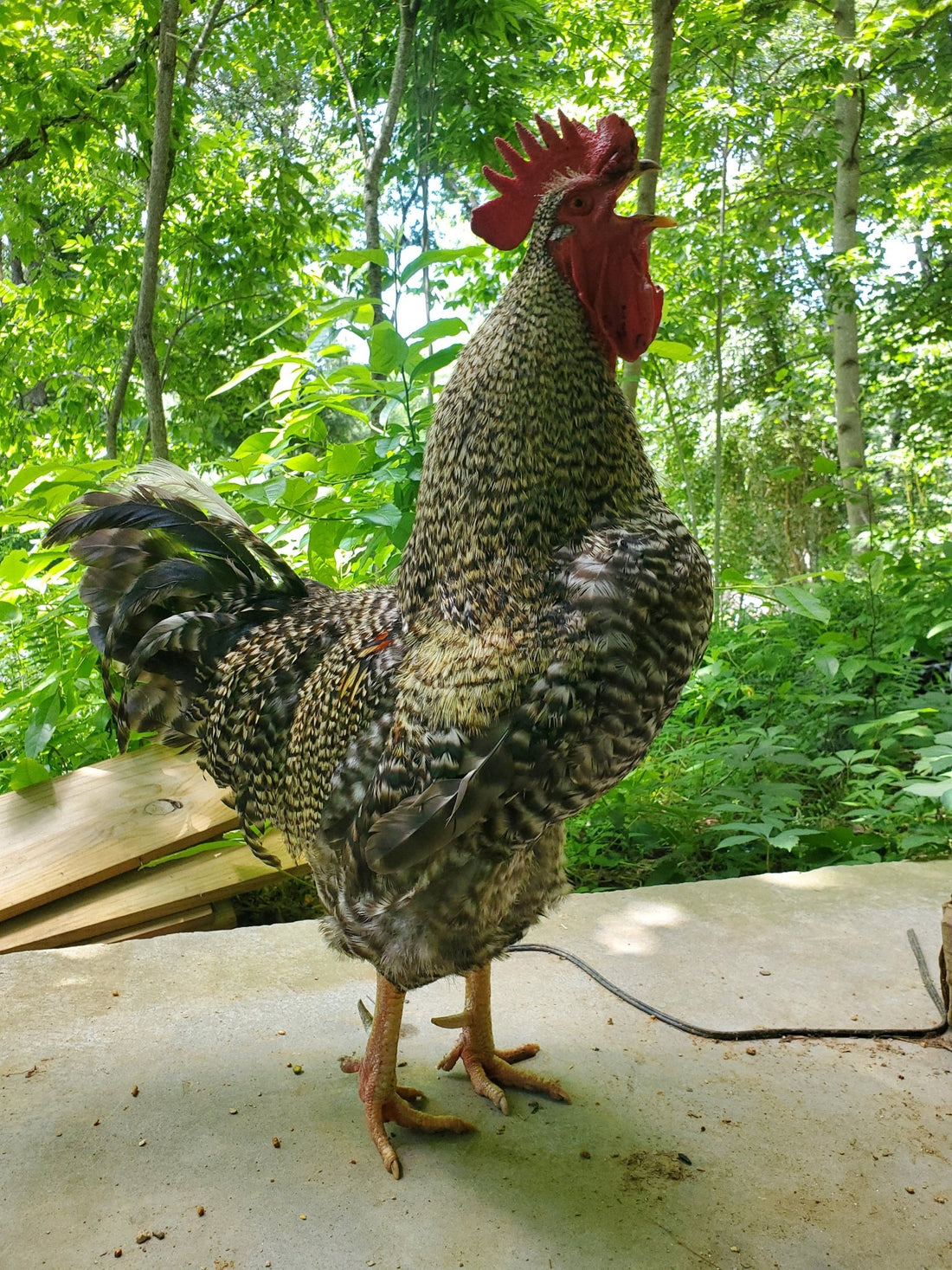When managing a backyard flock, the decision to keep a rooster is significant. Roosters can have a profound impact on the dynamics of your poultry community, contributing both positive and negative aspects. In this comprehensive guide, we will explore the various benefits and challenges of having a rooster in your flock. We'll also provide practical advice to help you determine whether a rooster fits well with your poultry-keeping goals.
The Role of a Rooster
Roosters are often admired for their striking appearance and bold demeanor. Beyond aesthetics, their primary role is flock protection. Roosters are naturally inclined to guard against predators and will alert the hens to take cover when danger is detected. Additionally, they help maintain order within the flock, intervening in disputes between hens and ensuring the group stays together.
In the breeding context, roosters are indispensable. They are responsible for fertilizing the eggs, ensuring the continuation of your flock. For those interested in hatching chicks, having a healthy rooster is essential.
Benefits of Keeping a Rooster
One of the main advantages of having a rooster is enhanced flock security. Their vigilance helps protect hens from potential threats, often putting themselves between danger and the flock. This protective behavior is crucial in rural areas where predators are more prevalent.
Moreover, roosters contribute to the social structure of the flock. They often lead the hens to food and water, and their presence can help reduce aggressive pecking among hens. This leadership helps establish a more peaceful and cooperative environment within the coop.
Challenges of Rooster Ownership
However, keeping a rooster is not without its challenges. One of the most common issues is noise. Roosters do not just crow at sunrise; they can be heard throughout the day, which might be problematic in urban or suburban areas with noise restrictions.
Aggression can also be a concern. Some roosters may become overly protective of their hens, leading to aggressive behavior towards humans or other pets. This trait varies by individual and breed, and while it can often be managed, it requires careful handling and proper socialization.
Legal and Social Considerations
Before adding a rooster to your flock, it's essential to check local ordinances. Many areas have specific regulations regarding rooster ownership due to their potential noise. Additionally, consider your neighbors: a crowing rooster early in the morning might strain relationships if close by.
Choosing the Right Rooster
If you decide a rooster is right for your flock, selecting the right one is crucial. Consider the breed, as some are known for being more aggressive or noisier than others. It’s also beneficial to observe the rooster's behavior before making a commitment. Look for one that is assertive yet not overly aggressive, as this will help ensure a balance between protection and safety.
Rooster Care Essentials
Roosters require much of the same care as hens but pay extra attention to their specific needs. For instance, they often engage in sparring, so providing plenty of space can help minimize injuries. Their diet may also need adjustments, especially if they are highly active protectors, to ensure they have enough energy and maintain optimal health.
Common Misconceptions About Roosters
Many people believe that roosters are naturally aggressive and noisy, but this isn't always the case. Much depends on the breed and individual temperament. With proper management and training, many roosters can be integrated into a flock without major issues.
Another misconception is that roosters are necessary for hens to lay eggs. Hens will lay eggs regardless of a rooster's presence; however, those eggs will not be fertilized unless a rooster is part of the flock.
Keeping a rooster has its set of pros and cons. They can enhance the security and social dynamics of your flock, but they also come with responsibilities and potential challenges. By understanding these considerations and preparing adequately, you can make an informed decision about whether a rooster is right for your flock.

